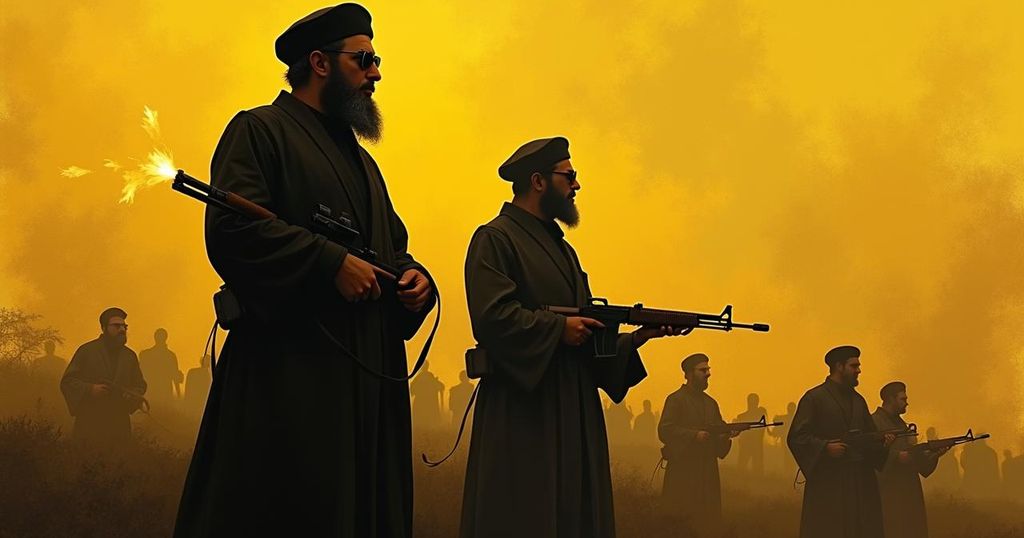Hassan Nasrallah, leading Hezbollah for over thirty years, has transformed the organization into a dominant paramilitary force against Israel, building significant alliances and navigating regional conflicts. His leadership is characterized by strategic pragmatism and charismatic oratory, though he operates largely from hiding due to assassination threats. Recent developments include Hezbollah’s involvement in the escalating conflict post-October 7, 2023, and responses to Israeli military actions.
Hezbollah, led by Hassan Nasrallah for more than thirty years, has evolved into a formidable paramilitary organization within the Middle East. Nasrallah, now a seasoned leader at 64, has been pivotal in transforming Hezbollah into a staunch adversary of Israel while forging alliances with Shiite clerics in Iran and Palestinian factions like Hamas. His leadership was catalyzed by personal tragedies, including the loss of his son in conflict and the assassination of his predecessor, Sayyed Abbas Musawi, in 1992, which propelled him to the forefront of the organization. Hailing from a modest background, Nasrallah was born in 1960 in the impoverished outskirts of Beirut. After joining Hezbollah—formed through Iranian revolutionary support against Israeli incursions—he cultivated a robust power base, enhancing the group’s military capabilities and political stature. Under his guidance, Hezbollah successfully orchestrated the 2000 withdrawal of Israeli troops from southern Lebanon, solidifying Nasrallah’s reputation regionally and internationally. His leadership was further affirmed during the 2006 conflict with Israel, which saw Hezbollah attaining a stalemate despite significant pressure. Recently, amidst renewed hostilities following the outbreak of the Israel-Hamas conflict on October 7, Nasrallah has framed Hezbollah’s military engagement against Israeli positions as an integral component of broader regional resistance, asserting the necessity of continued action until a ceasefire is established in Gaza. Despite the mounting pressures, including airstrikes aimed at Hezbollah’s operational command, his defiance remains a prominent feature of his rhetoric as he navigates the complexities of contemporary Middle Eastern geopolitics.
Hassan Nasrallah’s tenure as the leader of Hezbollah has been marked by significant events that shaped both the group’s trajectory and regional dynamics. Formed in the aftermath of the 1982 Israeli invasion of Lebanon, Hezbollah emerged with Iranian backing to counter Israeli military influence in Lebanon. As the group’s secretary-general since 1992, Nasrallah has played a central role in Hezbollah’s military and political activities, overseeing key conflicts with Israel and the group’s expansion into regional conflicts, notably in Syria. His leadership style, characterized by its charisma and strategic pragmatism, contrasts with the more extreme figures who preceded him in the organization. Beyond the military campaign against Israel, Nasrallah has also been involved in complex alliances that bolster Hezbollah’s influence across the Middle East.
In conclusion, Hassan Nasrallah’s leadership has fundamentally redefined Hezbollah’s position as a significant militant player within the broader context of Middle Eastern conflicts. His rise from humble beginnings to a prominent leader illustrates his strategic acumen in navigating both domestic and international challenges. Despite facing renewed Israeli military actions, Nasrallah’s commitment to resisting Israeli operations reflects a broader ideological battle, emphasizing Hezbollah’s role as a bulwark against perceived threats in the region. As the geopolitical landscape continues to evolve, his leadership will be critical in shaping future conflicts and alliances.
Original Source: apnews.com







